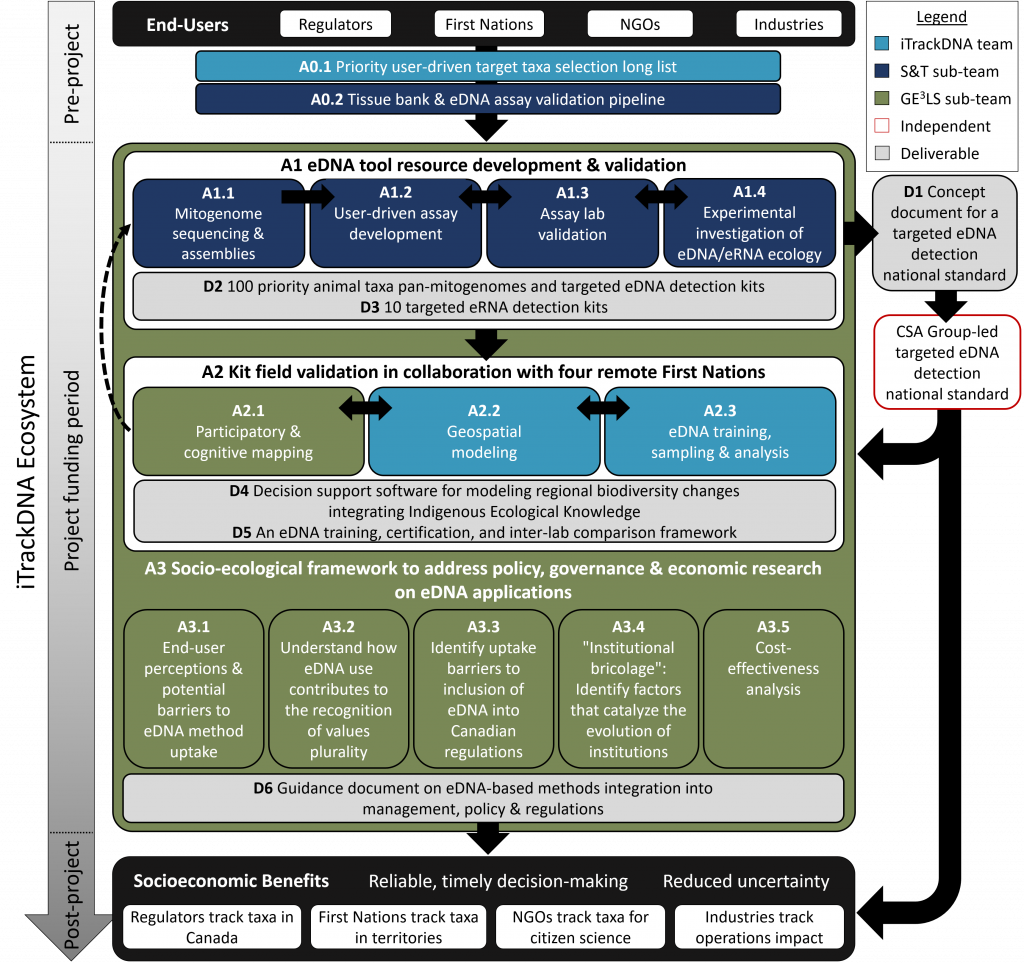The 3 main project activities include:

A1) eDNA tool resource development and validation
The first project activity will create, validate, and apply genomics tools for the detection of eDNA and eRNA. While the design details are unique for eDNA and eRNA assays, the general approaches are similar and feed into the creation of iTrackDNA kits.
A2) kit field validation in collaboration with four remote First Nations in Canada
This activity combines an exciting new application of social science principles in participatory and cognitive mapping to incorporate Indigenous Ecological Knowledge with geospatial mapping and modeling to aid in the decision-making process. With the First Nations and NGO partners, we will refine eDNA training and certification processes for community-based monitoring. To reach the most remote locations, manual water sampling will be complemented by drone sampling technology. One representative of each First Nation is part of the iTrackDNA team.
A3) a socio-ecological framework to address policy, governance, and economic research on eDNA applications
In A3, the participating End-Users will interact with our social sciences sub-team to accurately capture End-User perceptions and potential barriers to eDNA method uptake as essential knowledge for appropriately developing and adopting eDNA use in policy and regulations. To do so, the A3 work will be framed in a theoretical framework of Social-Ecological Systems.

